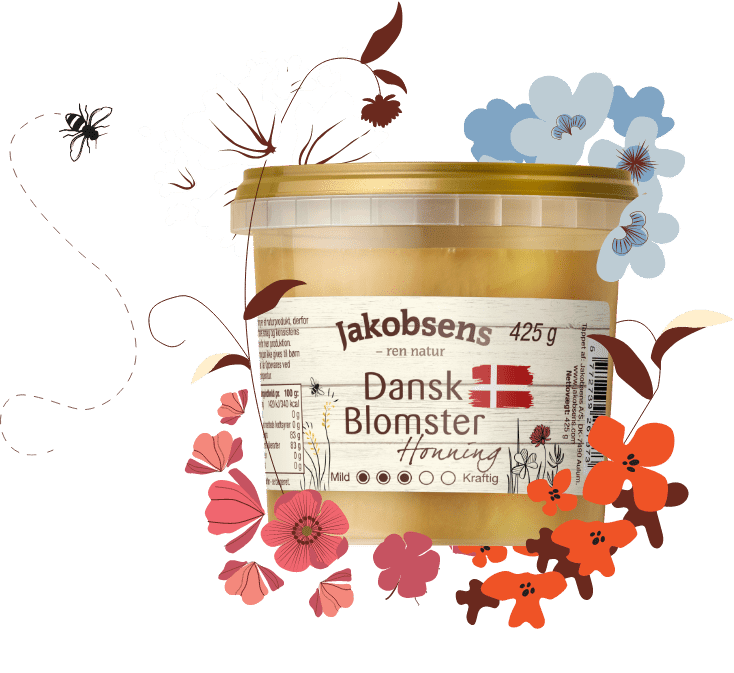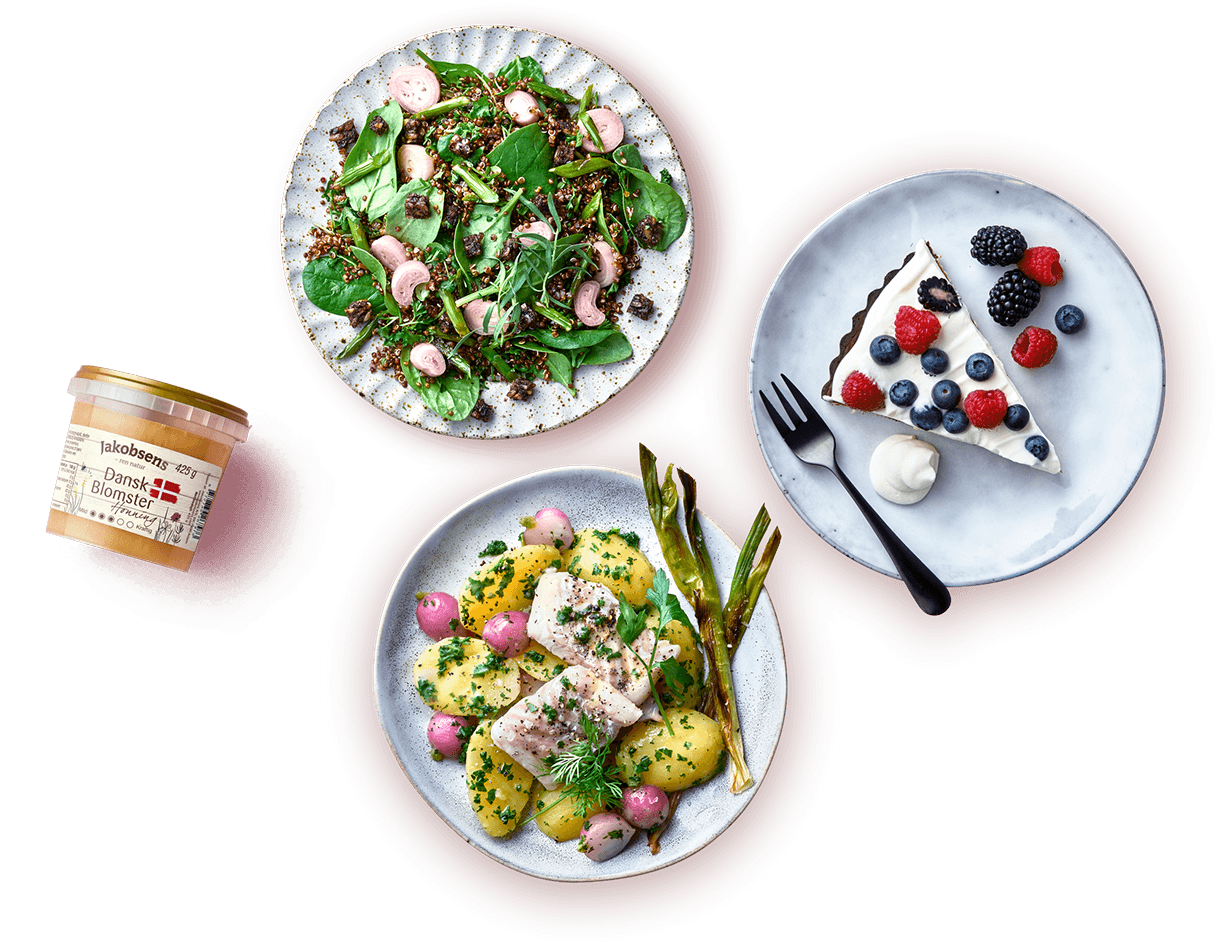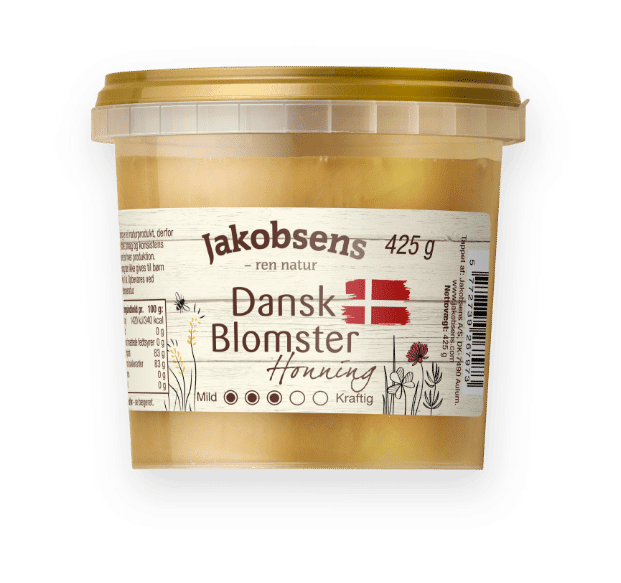Danish honey
Jakobsen's honey
and the Danish spring
Danish nature is in full bloom in spring, and bees are dedicated to collecting nectar to create an all-natural flower honey that can be used creatively and versatile.
With Danish honey from Jakobsens you can bring the spirit of spring into your dishes, and we would like to inspire you to use honey in your cooking - because there is no doubt that your spring dish would love a delicious spoonful of honey.

Recipes
Spring dishes with honey
Let the flavor bloom! Danish honey adds a natural sweetness to all your meals,
and here you'll find inspiration for five spring dishes that are made even better with the wonderful Danish honey.
Danish flower honey
Danish Flower Honey
from Jakobsens
Jakobsens flower honey has a delicious full-bodied, round and sweet taste. The honey is spreadable and has a very nice light and golden color. It is suitable as a spread on all kinds of bread and can, among other things, be used in baked goods and desserts in addition to being suitable as the sweet element in many everyday dishes.
Honey can also be used as a flavor enhancer and a spice that can be used in both sweet and savory cuisines - and with amazing results.

For you and the planet
Good for you and the planet
Since 1921, we have put our heart and soul into producing the highest quality honey that gives you the most delicious taste experience - straight from nature. We've been a staple on the breakfast table for generations, but now we're on a mission to "pollinate" your morning meal even more, so we can continue to help you get a natural, great start to your day.
We believe that natural ingredients from Mother Nature taste better and are a natural way to treat the planet.
For us, it's pure nature.



